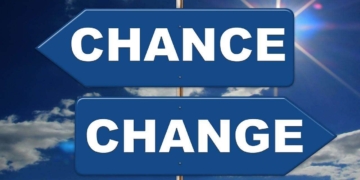Introduction
The rapid development of artificial intelligence (AI) is having a profound impact on various industries, and esports is no exception. AI offers a wealth of opportunities to strengthen fan engagement, improve quality of play, and make more informed sponsorship decisions. By analyzing player data, fan interactions and market trends, AI systems can provide valuable insights that can help personalize and improve the Esport experience. In addition, AI can help optimize game strategies and improve player performance by identifying patterns and trends that human players may miss.
However, the implementation of AI also brings a number of legal challenges. These include issues of data protection, intellectual property and liability. Esports organizations must ensure that they comply with data protection laws and protect their fans’ data. In addition, intellectual property issues may arise, especially when AI systems are used to develop game strategies. It may be unclear who owns the rights to these strategies and how they may be used. Finally, liability issues can arise, especially when AI systems make mistakes or have unforeseen consequences. Esports organizations must have clear policies and procedures in place to manage these risks.
Fan engagement and democratization through AI
AI can be used to create personalized experiences for fans and get them more involved in esports. By analyzing data such as gaming behavior, interactions on social media, and purchasing patterns, AI systems can create customized recommendations for fans. This can help strengthen fan loyalty and increase viewership. In addition, AI can help democratize voting processes. By using AI, voting can be made more transparent and fair, for example by detecting and preventing manipulation.
The integration of blockchain technologies, such as Non-Fungible Tokens (NFTs) or Decentralized Autonomous Organizations (DAOs), can provide a tremendous competitive advantage when combined with AI. For example, NFTs can be used to tokenize digital goods and experiences, enabling a new level of interaction and personalization for fans. DAOs can help democratize decision-making and increase community involvement.
However, the use of these technologies requires careful legal planning and adaptation. Esports organizations must be prepared to navigate the legal hurdles that come with using AI and blockchain technologies. This may include ensuring that intellectual property rights are cleared and liability issues are resolved.
In addition, Esports organizations should focus their marketing and PR on communicating the benefits of these technologies. This can help increase awareness and adoption of these technologies and get fans more involved.
Improving the quality of the game through AI
Another exciting application of AI in esports is the ability to analyze and evaluate third-party game strategies and techniques. AI systems can process a large amount of gameplay data and identify patterns and strategies that could be critical to success. This information can then be used to adjust and improve their own team’s strategies and training methods.
For example, an AI system could analyze the game strategies of a successful team and figure out which tactics and moves are particularly effective. These findings could then be used to optimize the training of their own team and prepare players for specific situations.
In addition, the application of AI in this area also opens up new business opportunities for third-party providers. Companies could develop specialized AI services aimed at helping Esport teams analyze and improve their gaming strategies. These services could include a range of functions, from analyzing game history data to providing customized training and coaching. This could represent a new and lucrative area of business in the esports industry, with benefits for both teams and service providers.
Better sponsorship decisions through AI
AI can also help make better decisions for sponsorship deals. By analyzing data such as viewership, fan interaction and match behavior, AI systems can make predictions about which sponsorship deals might be most effective. This can help increase the profitability of sponsorship deals and make Esports more attractive to sponsors.
Another aspect that should be considered in this context is the integration of streamers. Streamers are playing an increasingly important role in the esports community and can add significant value for sponsors. By analyzing streaming data, such as viewership, interactions and audience behavior, AI systems can provide valuable insights that can help increase the effectiveness of sponsorship offers.
For example, an AI could determine that certain streamers have a particularly engaged community, or that certain types of content resonate particularly well with viewers. This information could then be used to create targeted sponsorship offers based on viewers’ specific interests and preferences. This could help to increase the visibility and impact of sponsorship offers and thus improve the ROI for sponsors.
Legal challenges and solutions
However, the use of AI in esports also presents legal challenges. Arrangements must be made to protect the privacy of players and fans and to ensure compliance with the General Data Protection Regulation (GDPR) or data protection laws in possibly other regions. This is especially true when AI is used to analyze player data, fan interactions, and streaming data. The collection and processing of this data must be in accordance with the GDPR and the data subjects must be informed about the data use and give their consent.
In addition, contracts between players, organizers and sponsors need to be adapted to regulate the use of AI. These contracts must contain clear provisions on how data may be collected, stored and used, and who is liable for potential data breaches. This applies both to contracts with players and coaches who may want to use AI to improve their playing strategies and techniques, and to contracts with sponsors who may want to use AI to optimize their sponsorship deals.
Another important aspect is the protection of trade secrets. Information about how and when AI is used for one’s team, as well as the results of that use, such as game strategies developed, may be considered trade secrets. It is important that this information is protected both contractually and through information security efforts and appropriate technical and organizational measures (TOM).
In addition, international law and labor law must also be taken into account. Esports is a global industry, and the use of AI can raise legal issues in different countries. Esports organizations must ensure that they comply with laws and regulations in all countries in which they operate. In addition, employment law issues can arise when AI is used to analyze and evaluate the performance of players and employees.
Finally, the T&C requirements of the game providers and tournament organizers must also be taken into account. These may include specific rules and restrictions on the use of AI, and it is important that these are adhered to.
I find the combination of blockchain, esports and AI particularly exciting as it combines three of my areas of activity. As a “nerd”, I am fascinated by the possibility of combining these three technologies to create new solutions and opportunities in esports. I stand ready to help teams overcome these challenges and take full advantage of the new opportunities AI offers. With my expertise in AI, blockchain, and esports, I can help teams meet regulatory requirements while taking advantage of AI to improve performance, increase fan engagement, and make better sponsorship decisions. In doing so, I am particularly concerned with ensuring the security and protection of trade secrets. By implementing appropriate technical and organizational measures, I can help ensure that valuable information and strategies remain secure and confidential while we take full advantage of AI.
Conclusion and outlook
The future of AI in esports is exciting and promising. As AI technologies continue to evolve, new opportunities are opening up to strengthen fan engagement, democratize voting processes, improve match quality and make better sponsorship decisions. Integrating AI into esports could lead to even more personalized gaming experiences, improved game strategies, and more effective sponsorship decisions.
However, it is essential to carefully consider the legal challenges associated with implementing AI in esports. This includes privacy protection, compliance with the GDPR, contract customization, and trade secret protection. However, with careful planning and implementation, these challenges can be overcome to fully realize the benefits of AI while preserving the rights of all stakeholders.
As an expert in AI, blockchain and esports, I am well equipped to help you with these challenges. I look forward to using my expertise to help you reap the benefits of AI in esports while complying with legal requirements. If you are interested in learning more about the possibilities of AI in esports or need assistance in addressing the legal challenges, please do not hesitate to contact me. I’m looking forward to working with you and shaping the future of Esports.























